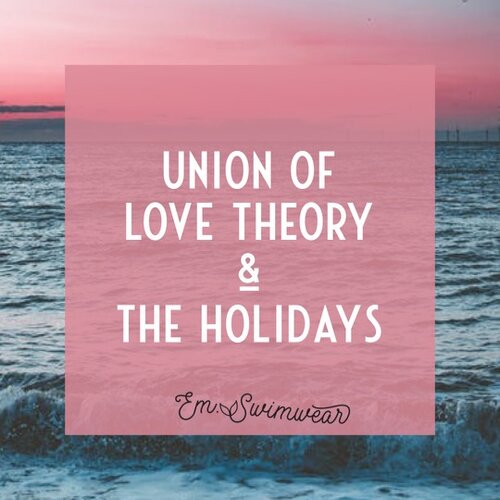The holiday season! That magical time of year where the days are getting shorter, it's colder outside so you can start baking sweet treats again, and our corporate overlords have finally deemed it the appropriate time to allow us access to that all too delicious Pumpkin Spice. Truly the most magical of seasons!
It's also the time of year where old family dramas resurface, we have to deal with the height of vapid consumerism, and, in years where we're not dealing with deadly pandemics, we have to contend with the stresses of modern travel.
…
…
…
TRULY THE MOST MAGICAL OF SEASONS!
Anyway, the reason I bring up the holiday season is because it is the one time of year that perhaps most embodies the Love as a Union theory. Simply put, this theory suggests that love can only exist when two or more people decide to enter into a compact with one another to create something greater than just themselves. When a group of people decide that their own self-interests should be put on the backburner in favor of the interests of the couple or, if you're waiting in baggage claim for your suitcase full of presents for your uncles, aunts, and cousins, the family.
This definition of love does make a lot of practical sense. Love is an emotion that requires, you know, other people in order to work. Even a lot of self-love is centered around the idea that you should treat yourself the way you would treat someone else (or at least should). However, if you've ever been in a toxic relationship, you probably already saw the inherent flaw in this theory. Namely, why would you willingly sacrifice any amount of your own self-interest or self-worth for a collective of people who may or may not contribute to the relationship or not have your own best interests at heart?
And if you did think that, you're absolutely right. It is a rather unnerving thought, especially in cultures that like to emphasize independence and the importance of the self, that anyone would willingly give up any portion of their autonomy to someone else. However, when it comes to significant others and close friends, the counter to this argument is that you would theoretically have a say in who you make a union with. If things are not living up to your expectations, you have every right to dissolve your union and find another union that would better protect and support you.
So problem solved, right? Union theory of love is the best theory of love? Well, you might have noticed I only addressed significant others and close friends in the above example. Love unions you actively chose to enter. If you've ever had to awkwardly sit in between your conservative uncle, who's had one too many PBR, and your cousin, who just finished their first semester of college and now has a blue streak in their hair, you're probably wondering about love unions you DIDN'T get to choose.
Every family structurer is different and while some can be great others can be absolutely terrible. Love between family members can be one of the most difficult webs to navigate and if you're in a truly toxic situation the best advice I can give is to get out of dodge. However, if you believe that your union with your family is flawed, but salvagable, then the best advice I can give you is to consider the Love as a Federation theory.
At first glance this might sound like a difference without a distinction, but the difference between the union and federation theories is that the federation theory places special emphasis on personal autonomy. Basically, in the federation theory, everyone agrees to a list of core tenants that the federation will live up to. This could include spending time together, helping someone if they're in trouble, or agreeing not to fight with one another. However, outside of those agreed upon goals, each person in the relationship is completely free to make their own social, political, and economic choices. The relationship isn't meant to create something bigger and better than itself, but rather is meant to provide an agreed upon framework for interaction and potential cooperation.
This might not sound like the most romantic of philosophies, but we don't exactly live in a romantic age. Everyday it seems like we're waking up to more and more bad news and it's likely not going to get better anytime soon. If you're in a truly terrible mess, the only way you can get out of it is to be pragmatic and potentially sit down to have some uncomfortable, but necessary conversations.

